History
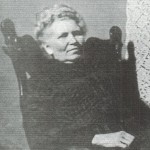 My Great Great Aunt Ida Spencer Brown Nass, married Andrew Alfred Brown on October 1, 1872. They had two sons, Elmer Ellsworth and Andrew Alfred. It is unknown what happened to Ida’s first husband, but she later married Sjur Johannesson Nass, who went by Samuel, and they had two daughters, Ellen and Ethel.
My Great Great Aunt Ida Spencer Brown Nass, married Andrew Alfred Brown on October 1, 1872. They had two sons, Elmer Ellsworth and Andrew Alfred. It is unknown what happened to Ida’s first husband, but she later married Sjur Johannesson Nass, who went by Samuel, and they had two daughters, Ellen and Ethel.
Ida and Andrew’s son Andrew Alfred, who usually went by A.A. Brown, married a woman names Emma Caroline Haessler. Their marriage was filled with love, and blessed with ten children, Gertrude Flora, Alwyn A, Emma Henrietta, John Henry “Johnie”, Bessie, Warren Winston, Elizabeth Ida, Edward Spencer, James Robert, and Fredrick Valden. While their lives were happy, they were not long. Emma passed away on October 31, 1918, leaving Andrew to raise their seven children…a difficult task with small families, but much harder for a man with seven children. Andrew was doing quite well with the task, even though his oldest daughter, Gertrude, who had most likely been a big help, was married on April 20, 1920, leaving him with one less helping hand around the house. Their son Alwyn had preceded his mother in death on June 10, 1918, as had Johnie on September 12, 1905 at 3 years of age, and Bessie on September 10, 1905 at 3 months of age.
On January 29, 1921, tragedy would again strike the family, when Andrew was killed in The Great Olympic Blowdown. The storm, which was one of the worst in Washington state 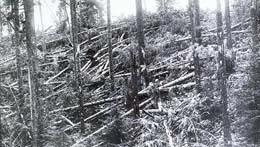 history, came in off the coast at around 8:00 am on January 29, bringing with it, hurricane force winds estimated at 125 to 150 mph. The Forest Service estimated the loss of timber at several billion board feet. The loss of life was one, Andrew A Brown, who was an engineer working at the Anderson-Middleton Lumber Mill in Aberdeen. He was killed instantly when a sudden gust blew down a smokestack pinning him against a broken steam pipe and scalding him to death.
history, came in off the coast at around 8:00 am on January 29, bringing with it, hurricane force winds estimated at 125 to 150 mph. The Forest Service estimated the loss of timber at several billion board feet. The loss of life was one, Andrew A Brown, who was an engineer working at the Anderson-Middleton Lumber Mill in Aberdeen. He was killed instantly when a sudden gust blew down a smokestack pinning him against a broken steam pipe and scalding him to death.
Once again, a grieving Gertrude, who had married Patrick Mint House, stepped in, taking the remaining six children into their home and raising them as their own. Emma was 21 years old by then, so I don’t know if she lived with her sister or not, but the rest of the children ranged in ages from 4 years to 14 years. The littlest ones would most likely not even remember their parents very clearly in the coming years. Their parents hadn’t shared memories of their childhood even with their eldest daughter, Gertrude, so the memories the younger children would have would only be what little bits and pieces she could tell them of her childhood years with their parents. I have to commend Gertrude and Patrick for their heroic and selfless act of taking in her siblings. I can only imagine how hard that must have been for them. In looking through the genealogy records, I can’t find any evidence of Gertrude and Patrick having any children of their own. I don’t know 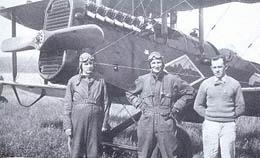 if that was because they were unable to have children or that they had a ready made family. Either way, I find that very sad, because I think they must have been wonderful, loving parents. I imagine that it was an enormous job to take on six children…especially when one is only 23 years old herself. Still, they were family and she loved them. She could not bear to have them go to an orphanage, so she and her husband did what they had to do, and raised her siblings in a happy, loving home…an act of kindness the children never forgot.
if that was because they were unable to have children or that they had a ready made family. Either way, I find that very sad, because I think they must have been wonderful, loving parents. I imagine that it was an enormous job to take on six children…especially when one is only 23 years old herself. Still, they were family and she loved them. She could not bear to have them go to an orphanage, so she and her husband did what they had to do, and raised her siblings in a happy, loving home…an act of kindness the children never forgot.
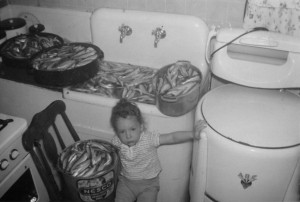 Most little kids don’t really like fish much, unless it is in the form of fish sticks, and I don’t think fish sticks existed when my sister, Cheryl and I were little girls. I don’t know why Cheryl wanted to have her picture taken with all these fish, or if my mom just set her there because she would be a good point of reference to show just how many fish there were here, but I do know that it would have been a good thing that the fish were dead already, because if they had been flipping around, Cheryl would have probably been freaking out for sure…I know I would have, but then I was a baby. The fish were Smelt, and there were lots of them.
Most little kids don’t really like fish much, unless it is in the form of fish sticks, and I don’t think fish sticks existed when my sister, Cheryl and I were little girls. I don’t know why Cheryl wanted to have her picture taken with all these fish, or if my mom just set her there because she would be a good point of reference to show just how many fish there were here, but I do know that it would have been a good thing that the fish were dead already, because if they had been flipping around, Cheryl would have probably been freaking out for sure…I know I would have, but then I was a baby. The fish were Smelt, and there were lots of them.
Rainbow Smelt, which are silver-colored fish about 6 to 9 inches long, are not native to Lake Superior, but rather to the Atlantic and Pacific Oceans. Smelt entered the Great Lakes accidentally in 1912 when they escaped from an inland lake in Michigan where they had been stocked as forage fish. After that, they quickly spread throughout Lake Michigan and were finally discovered in Lake Superior in 1946. By that time, Sea Lamprey, which had also invaded Lake Superior, had begun reducing the number of native lake Trout, so there were far less Trout to eat the Smelt and they began to rapidly increase in number. Every year in mid-April, the Smelt head for the streams to lay their eggs. They are light sensitive, so smelting must be done at night. The best place to go smelting is at the mouth of the streams where they enter the Lakes. The rapids make it more difficult for the fish to jump over them into the stream, and so they are in abundance at that place. Smelting was a big deal at the time we were living in Superior, Wisconsin, when Cheryl and I were little girls.
When April came around in 1957, Mom, Dad, Uncle Bill, and Aunt Doris took Cheryl, me, and our cousin, Pam, and went smelting. Of course, the women pretty much just watched the proceedings, while Dad and Uncle Bill gathered up the buckets of fish that would be our haul for the evening. It was a good run, and the amount of fish they took home was amazing. The fish were then cleaned and frozen for lots of good eating down the road. I’ve never been smelting, at least where I actually participated, but I can imagine that it was pretty exciting to see all those fish all at once. usually think of fishing as a lazy day sport, and normally it is, but during a smelting run, it sounds pretty exciting to me!!
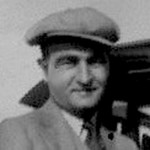 My great aunt, Mina Albertine Schumacher, who went by Minnie as a child, but Min for most of her adult life, married John Clark Spare in Fargo, North Dakota on January 8, 1921. In the years preceding their marriage, John had enlisted in the North Dakota National Guard, Company B, at the age of 17 years. His company was assigned to the Rio Grande River Patrol on the Mexican border at Mercedes, Texas. Company B was patrolling one day, and John had an empty gun, because at that point, there was not enough ammunition to go around. Basically, the men who had loaded guns would have to cover the ones who did not, in the event of anything illegal happening along the border. I suppose that was the only thing that they could do, but I have to tell you that I would not feel very comfortable being one of those guys who did not have any ammunition at the border between Mexico and the United States. I realize that these days that border is probably more dangerous than it was then, but maybe not. Many of the outlaws from both countries ran to the other country to hide out from the law in their own country.
My great aunt, Mina Albertine Schumacher, who went by Minnie as a child, but Min for most of her adult life, married John Clark Spare in Fargo, North Dakota on January 8, 1921. In the years preceding their marriage, John had enlisted in the North Dakota National Guard, Company B, at the age of 17 years. His company was assigned to the Rio Grande River Patrol on the Mexican border at Mercedes, Texas. Company B was patrolling one day, and John had an empty gun, because at that point, there was not enough ammunition to go around. Basically, the men who had loaded guns would have to cover the ones who did not, in the event of anything illegal happening along the border. I suppose that was the only thing that they could do, but I have to tell you that I would not feel very comfortable being one of those guys who did not have any ammunition at the border between Mexico and the United States. I realize that these days that border is probably more dangerous than it was then, but maybe not. Many of the outlaws from both countries ran to the other country to hide out from the law in their own country.
On that day, John was patrolling near the bridge by the encampment, with his empty gun. Suddenly, a herd of horses was seen thundering toward them. Behind the herd was Pancho Villa and his gang of bandits. The gang was in a gun fight with the men from the Third Cavalry, from whom the gang had stolen the horses. The time had come for the border patrol to do their duty. It would be the job of the ones with the ammunition to engage the enemy and assist the Cavalry. The remainder of the men would need to dive under the bridge for cover. The men immediately prepared to take their necessary positions, and with one accord, all of the men of the border patrol dived under the bridge. Unbeknownst to the men, at least until that moment, they all had unloaded guns!! While that might seem like a funny thing to see all those men diving under that bridge because they did not have the ammunition to fight in the battle that was looming down on them, my guess is that it would also be a horrifying situation to the men hiding under the bridge hoping the battle would continue to go on down the road, and not circle back.
Following his time as part of the border patrol, John was called to the Guard full time, and assigned to guard the Fargo Armory, just as bombs were being placed at strategic points around the country to blow them up if it became necessary. I think it is a bit ironic that on his first assignment, John had no ammunition, and at his second assignment, when he was just going on 19 years of age, he was guarding a building that held larges stores of ammunition. I have to think that he must have thought to himself, “Where was all this ammunition when we were at the border?” John’s company would be taken into the Federal Army as the United States entered World War I. John would later re-enlist and fight in both world wars before he finally decided that he had served his time. I’m sure my Great Aunt Min was glad when he came home for good.
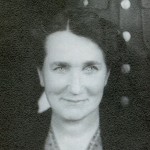 As time marched forward toward the United States entering World War II, many people were afraid for the lives of their sons. My dad’s mother, who had two sons, was among them. Things were really heating up while my dad was working in California, and the family really wanted him come home. The word was that any young men 18 to 20 years of age were going to be deployed by Christmas 1942, putting my dad and my Uncle Bill squarely in that group. It was a fearful time in our country. People didn’t want their sons to go to the war, but they knew that Hitler had to be stopped. The things Hitler was doing were so horrible that everyone knew that he must not be allowed to take any more countries over. He was completely insane and dead set on controlling the whole world. They knew that while the fear of sending their sons into battle was almost more than they could possibly bear, it was also going to be the only way to stop this horrible man.
As time marched forward toward the United States entering World War II, many people were afraid for the lives of their sons. My dad’s mother, who had two sons, was among them. Things were really heating up while my dad was working in California, and the family really wanted him come home. The word was that any young men 18 to 20 years of age were going to be deployed by Christmas 1942, putting my dad and my Uncle Bill squarely in that group. It was a fearful time in our country. People didn’t want their sons to go to the war, but they knew that Hitler had to be stopped. The things Hitler was doing were so horrible that everyone knew that he must not be allowed to take any more countries over. He was completely insane and dead set on controlling the whole world. They knew that while the fear of sending their sons into battle was almost more than they could possibly bear, it was also going to be the only way to stop this horrible man.
The letters from home to my dad in California were filled with worried questions. They had heard rumors of the impending deployment back home in Holyoke, Minnesota, and were desperately hoping that what they heard in that small town was wrong. They questioned my dad, as to why he thought he would be going so soon. Uncle Bill and Dad had both decided 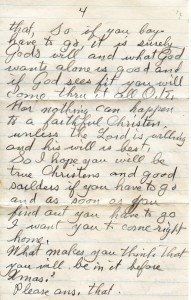 that if one was called to go, the other would join up too. I’m sure they were thinking that if they went together, they could watch each other’s back. In the end, that was not to be, because Uncle Bill had flat feet and a hernia that needed to be repaired. It was a devastating blow to him. He wanted so desperately to be there with his little brother. He had always been there for him, to protect him, and it seemed impossible that he couldn’t do that this time. He was scared for his little brother. He even tried to get him to take welding classes, because he mistakenly thought that my dad wouldn’t have to go if he was working in the shipyards. I don’t know if dad took the classes or not…he did at some point, because he worked as a welder for many years…but if he did, it did no good, because they needed men in the war zones, and that was more important to the country. In the end, he chose the Army Air Force, and went to the war, did his duty to his country and the world, and he lived!!
that if one was called to go, the other would join up too. I’m sure they were thinking that if they went together, they could watch each other’s back. In the end, that was not to be, because Uncle Bill had flat feet and a hernia that needed to be repaired. It was a devastating blow to him. He wanted so desperately to be there with his little brother. He had always been there for him, to protect him, and it seemed impossible that he couldn’t do that this time. He was scared for his little brother. He even tried to get him to take welding classes, because he mistakenly thought that my dad wouldn’t have to go if he was working in the shipyards. I don’t know if dad took the classes or not…he did at some point, because he worked as a welder for many years…but if he did, it did no good, because they needed men in the war zones, and that was more important to the country. In the end, he chose the Army Air Force, and went to the war, did his duty to his country and the world, and he lived!!
For some time now, I thought that the main reason my dad’s letters home were always upbeat and positive was so that he could protect his mother…keep her from worrying about how bad things were. Now, after reading her letters to him, and the letters from his brother and sisters, talking about how worried their mother was, I realized that he wasn’t trying to keep her from worrying…she had already voiced those fears…she was already in the middle of serious worry, and now she was in the middle of praying that her boys wouldn’t have to go, and if they did…please dear Lord, take care of them and bring them home to her!!
It is hard enough to go into battle or to send your son into battle…to deal with the fear in your own heart…much less to know that your soldier was scared…and for the soldier, to know that 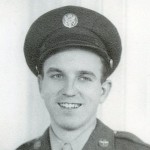 your family is scared. Knowing my dad like I do, I know that he was in the process of pushing his fear back, putting his faith in God, and setting his mother’s worried mind at ease. He knew he could not stop what was coming, but the hardest thing to accept was that he couldn’t really stop his mother’s fears…no matter how excited, positive, or fearless he made his letters sound. And, that tore him up more than anything he would face in the war. The days leading up to, and during World War II, were filled with the worries and fears of a nation. The letters to the soldiers and home from the war, were carefully worded so as to try to alleviate the fears that could not be alleviated until the deployed loved ones were home again.
your family is scared. Knowing my dad like I do, I know that he was in the process of pushing his fear back, putting his faith in God, and setting his mother’s worried mind at ease. He knew he could not stop what was coming, but the hardest thing to accept was that he couldn’t really stop his mother’s fears…no matter how excited, positive, or fearless he made his letters sound. And, that tore him up more than anything he would face in the war. The days leading up to, and during World War II, were filled with the worries and fears of a nation. The letters to the soldiers and home from the war, were carefully worded so as to try to alleviate the fears that could not be alleviated until the deployed loved ones were home again.
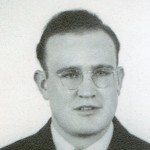
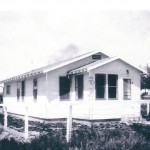 Uncle Bill always had some new iron in the fire. He has many interests and talents. Uncle Bill, who’s full name is William Malrose Spencer II, was named after his grandfather, William Malrose Spencer I. To Uncle Bill, the single most important accomplishment of his lifetime, is the incredible family history he has dedicated his life to documenting. Uncle Bill started the family history as a young boy of only 8 years. He never quit thinking about the family history after that, even after dementia clouded his ability to process the information he found like he used to do.
Uncle Bill always had some new iron in the fire. He has many interests and talents. Uncle Bill, who’s full name is William Malrose Spencer II, was named after his grandfather, William Malrose Spencer I. To Uncle Bill, the single most important accomplishment of his lifetime, is the incredible family history he has dedicated his life to documenting. Uncle Bill started the family history as a young boy of only 8 years. He never quit thinking about the family history after that, even after dementia clouded his ability to process the information he found like he used to do.
Recently, I came across another accomplishment of Uncle Bill’s…one I would never have expected. While looking at his Family History Journals, I found a picture of a house, and I wondered what significance this house might have to have found a place in the family history. Nevertheless, Uncle Bill clearly thought it belonged. The building of the house began in 1948, and continued to it’s completion in 1951. Why would a house take so long to build? The answer explains it quite well. My Uncle Bill, whose nickname is Willie, singlehandedly built the house. The only work he did not do was the wiring and plumbing. The concrete for the sidewalk and steps, was mixed in a 3 x 4 foot plank box, with a hoe. Having done a little concrete mixing with a hoe, I can attest to how difficult that is to get right, or maybe that’s just me…techy yes, builder…not so much. During that time, Uncle Bill was living in Casper, and wanted something to do in his spare time. Building a house seemed to fit the bill nicely. I know that is an odd hobby, but it was the one he chose.
Sometimes, people come into our lives in odd ways. One night while Uncle Bill was digging a trench from the bathroom to the sewer line, it was late and dark. He had a light cord out there, so he could see. Suddenly someone yelled, “What are you digging down there…a grave??” The voice came from a young man named Mark Knittle and Uncle Bill liked his sense of humor immediately. They became lifelong friends, and kept in contact for many years. So, what of the house that Willie built…well, it still stands today and it’s in very good shape. 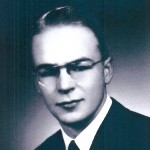
 Not much has changed about the house at 1228 S Jackson Street, other than the color of the paint. I tried to locate Mark Knittle, but the Mark Knittle who lives in Casper at this time, is apparently no relation. I found that rather sad, because I had hoped to tell a little more about their friendship. Today is my Uncle Bill’s 92nd birthday. He is doing quite well in most ways, and loves having visitors. Happy birthday Uncle Bill!! Have a great day!! We love you!!
Not much has changed about the house at 1228 S Jackson Street, other than the color of the paint. I tried to locate Mark Knittle, but the Mark Knittle who lives in Casper at this time, is apparently no relation. I found that rather sad, because I had hoped to tell a little more about their friendship. Today is my Uncle Bill’s 92nd birthday. He is doing quite well in most ways, and loves having visitors. Happy birthday Uncle Bill!! Have a great day!! We love you!!
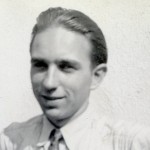 In 1938 to 1939, my dad moved from the family farm, into town so he could attend vocational school. He studied sheet metal fabrication. After he graduated, he moved to Santa Monica, California, at the very young age of just 17 years, and went to work for Douglas Aircraft. Uncle Bill, dad’s brother, let him take his 1934 Plymouth, which broke down on the way there, and Dad had to wire his dad for the money to fix it. It’s pretty had to fix a broken down car, when you are on the way to a new job. Most of us don’t have a lot of money at that point, and after the Great Depression, the country was just starting to come back. This job would begin to move my dad into a position for some of his future jobs, later in life, beginning with his military placement as a Flight Engineer. The Flight Engineer had to know everything about the plane, because it was his job to try to get them back to the base safely…even if something went wrong with the plane. There was no place to pull over when you are flying at 25,000 to 30,000 feet. There was at least one time I know of that Dad was the only reason they came back safely, because the landing gear would not go down. He had to hang upside down in the open bomb bay and crank it down by hand.
In 1938 to 1939, my dad moved from the family farm, into town so he could attend vocational school. He studied sheet metal fabrication. After he graduated, he moved to Santa Monica, California, at the very young age of just 17 years, and went to work for Douglas Aircraft. Uncle Bill, dad’s brother, let him take his 1934 Plymouth, which broke down on the way there, and Dad had to wire his dad for the money to fix it. It’s pretty had to fix a broken down car, when you are on the way to a new job. Most of us don’t have a lot of money at that point, and after the Great Depression, the country was just starting to come back. This job would begin to move my dad into a position for some of his future jobs, later in life, beginning with his military placement as a Flight Engineer. The Flight Engineer had to know everything about the plane, because it was his job to try to get them back to the base safely…even if something went wrong with the plane. There was no place to pull over when you are flying at 25,000 to 30,000 feet. There was at least one time I know of that Dad was the only reason they came back safely, because the landing gear would not go down. He had to hang upside down in the open bomb bay and crank it down by hand.
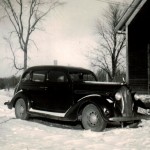
My dad was very good at the work he did for Douglas Aircraft, but on December 7, 1941, everything changed. Dad left California, in the 1936 Plymouth he had bought, and came home just as the United States was entering World War II. His plan, of course, was to join the Army Air Forces. He was a perfect match for the Army Air Forces, because of his knowledge of air craft, and they saw that right away. He was put into training, and placed on a B-17G crew, as the Flight Engineer, and stationed at Great Ashfield, Suffolk, England. His crew left Texas, and flew to New York City, on April 1, 1944, where they refueled and went on to England.
Most crews on B-17G planes had to fly 35 missions before they could come home, but at Great Ashfield, because of how dangerous that area was, they only had to fly 25. My dad ended up flying 26 before he came home. I don’t think his family knew how dangerous that base was, because my dad would not have told them. “The average life of a B-17 bomber at Great Ashfield was just over 4 months. Very few B-17 bombers that were transferred to the base lasted a complete tour of duty. The average Airman lasted 15 combat missions and few completed an entire tour of 25 missions. Much less 35 !!!! The average LIFE of a Ball Turret Gunner in combat was 12 MINUTES.” Knowing that my dad somehow beat those odds, reminds me of 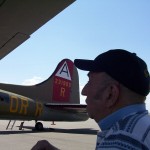 the many miracles in his life. His crew did lose at least one Ball Turret Gunner, and my dad tried everything he could to save his life, but it was no use…he was gone.
the many miracles in his life. His crew did lose at least one Ball Turret Gunner, and my dad tried everything he could to save his life, but it was no use…he was gone.
In later years, Dad would work for Fred Dewell, as a welder and sheet metal fabricator. His training at vocational school and Douglas Aircraft made him an asset to that company. Then Dad went to work for WATCO, building the boxes for Caterpillar trucks. He was one of their best welders, and was remembered by the people who worked there for many years after his retirement. His training as a young man of only 16 years, served him well all of his life, and I have always been very proud of the things he did in his lifetime.
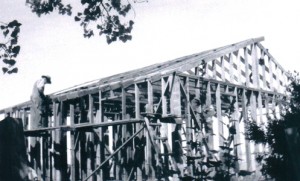 In days gone by, there just weren’t a lot of construction companies out west. People built their own houses. Of course, if a man has to build his own house, you can bet it took him a while to complete it. I don’t really think a lot of people built their house all by themselves however, because if they lived anywhere near the neighbors, people just seemed to show up to help. I’m not sure just how they knew that you were in the process of building a house or barn back in the old west, but somehow they did, and so they came to help. There was a camaraderie back then that doesn’t always exist today. Too many people don’t want to get involved, or they just decide that they are too busy with their own lives to go and spend time helping others.
In days gone by, there just weren’t a lot of construction companies out west. People built their own houses. Of course, if a man has to build his own house, you can bet it took him a while to complete it. I don’t really think a lot of people built their house all by themselves however, because if they lived anywhere near the neighbors, people just seemed to show up to help. I’m not sure just how they knew that you were in the process of building a house or barn back in the old west, but somehow they did, and so they came to help. There was a camaraderie back then that doesn’t always exist today. Too many people don’t want to get involved, or they just decide that they are too busy with their own lives to go and spend time helping others.
With droughts and thunderstorms causing buildings to burn, and no fire trucks or fire stations available, your neighbors always seemed to be the first responders to fire emergencies, or any other emergency, for that matter. Unfortunately with the neighbors living so far away from each other, the house or barn was usually gone before anyone could get there to help you put out the fire, and when all you are using is a bucket and a wet towel, it’s pretty much a lost cause before you even start. Nevertheless, they were right there to help you rebuild, so that you weren’t left without shelter for your family or your animals. That was just how neighbors were in the old west.
When you think about it, it was how they had to be in order to survive. With the Indian uprisings, and the old west outlaws, the pioneers had to stick together. There wasn’t a lot of lumber companies, and if they homesteaded a piece of land with an abundance of trees on it, they could cut down the trees to clear the field, and use the logs to build the cabin too. That was doing it the hard way, of course, so having friendly neighbors to help you get the job done before winter set in was essential. And of course, meeting the neighbors and offering to help them with their house or barn always meant a big potluck dinner and barn dance when the work was done. They didn’t have to get all dressed up and go somewhere fancy to have a great evening, they just got together with the neighbors and had a hoe down.
With time and modern equipment, came more construction companies, big cities, and less neighborly camaraderie. In fact, people these days are as likely not to know their neighbors as they are to know them. Sad when you think about it. We don’t live in such a big 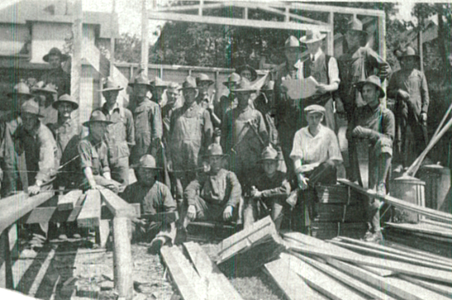 city, that all of that has gone away. Our neighbor, Bill has a snow blower, and if it snows while we are at work, he is out there with that snow blower doing the sidewalks and driveways for about half the block. It’s very nice for Bob to be able to come home and not have to get out the and shovel every thing off. Of course, Bill knows that anytime he needs help, all he has to do is ask, because we will be there with bells on, and likely as not, Bob is out there doing something for Bill before he has a chance to ask. I love our neighbors, and after all, that is what being neighborly is all about.
city, that all of that has gone away. Our neighbor, Bill has a snow blower, and if it snows while we are at work, he is out there with that snow blower doing the sidewalks and driveways for about half the block. It’s very nice for Bob to be able to come home and not have to get out the and shovel every thing off. Of course, Bill knows that anytime he needs help, all he has to do is ask, because we will be there with bells on, and likely as not, Bob is out there doing something for Bill before he has a chance to ask. I love our neighbors, and after all, that is what being neighborly is all about.
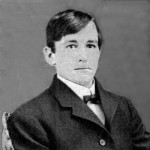 How could a simple trip become such an awful nightmare? Walter Alden Davis was just going on a short trip with his friend, Fred Willar to celebrate Independence Day in 1906. It was going to be a great day, and it was a great day, until the day ended. Walter and Fred rode their horses to Hay Springs, Nebraska from their homes in Rushville, Nebraska. The distance was about 12 miles. Then they took the train into Chadron, Nebraska for the festivities and to visit some friends.
How could a simple trip become such an awful nightmare? Walter Alden Davis was just going on a short trip with his friend, Fred Willar to celebrate Independence Day in 1906. It was going to be a great day, and it was a great day, until the day ended. Walter and Fred rode their horses to Hay Springs, Nebraska from their homes in Rushville, Nebraska. The distance was about 12 miles. Then they took the train into Chadron, Nebraska for the festivities and to visit some friends.
Walter had seen a coyote earlier in the day, so he borrowed a revolver from a friend in case he saw another one. After a great day with friends and the Independence Day festivities, Walter and Fred took the midnight train back to Hay Springs, where they got a room at the hotel. Unfortunately, Walter had forgotten about the revolver, which was in his pocket, and when he dropped his pants on the floor, the revolver fired. The bullet went up through Walter’s hip and into his abdomen. He died a few hours later, on July 5, 1906. He was only 21 years old. The accident happened just 11 days before his 22nd birthday.
When I think of how Great Aunt Tessie and Great Uncle William must have felt when they heard the news, it makes me want to cry. They had already lost a son, Edward Allen Davis in 1893, at just 3 months of age, and a set of twins, a boy and a girl, in 1898, who died at birth, and now this. We often wonder just how much tragedy we can take, and in the 1800’s and early 1900’s, medicine was just not as good. Doctors could only do so much for poor Walter. Maybe if this had happened in this day and age, he might have been saved, but maybe not too. There is just no way to say with any certainty.
I’m sure the family wondered how they could go on without this handsome son who had been such a big help on the ranch. Nevertheless, the Davis family were a strong bunch, and they would not only survive this loss, but the loss of two more children. One before William passed away in 1925, and another the year after his death. I have to think that Great Aunt Tessie was a one of the true pioneer women of the west, because those women had to be strong enough to live through disaster and tragedy, and still come out of it unbroken. While nothing would replace their handsome boy, they would move forward, and they would survive.
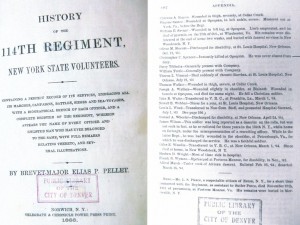 I have never had to experience the horror of a knock at the door, by a telegraph or phone call or military personnel, bring the most awful new a parent could possibly receive…their child has been killed in action. I can only imagine how the family felt after hearing that news…the feeling of having your heart literally ripped out of your chest…knowing that nothing in your life will ever be the same. The parents will now have to bury their child, and no parent should ever have to do that…for any reason. I have to think that sleep will be very hard to come by after that, because every time they close their eyes they will see their child in the middle of a battle and that moment when their child will lose that battle. I don’t think I would want to close my eyes.
I have never had to experience the horror of a knock at the door, by a telegraph or phone call or military personnel, bring the most awful new a parent could possibly receive…their child has been killed in action. I can only imagine how the family felt after hearing that news…the feeling of having your heart literally ripped out of your chest…knowing that nothing in your life will ever be the same. The parents will now have to bury their child, and no parent should ever have to do that…for any reason. I have to think that sleep will be very hard to come by after that, because every time they close their eyes they will see their child in the middle of a battle and that moment when their child will lose that battle. I don’t think I would want to close my eyes.
I don’t think there have been a lot of my family members that were killed in action, but I can’t say that for sure. The two I know of were Christopher Columbus Spencer and William Henry Davis. I don’t know much about Christopher’s parents, Christopher and Anna Rice Spencer, because they lived in the 1800’s, but I know they both died within 5 years of their son’s death in the Battle of Opequon, also called the Third Battle of Winchester. It was a battle in the Civil War fought in Winchester, Virginia. This was a fierce and bloody battle, with 5,020 Union casualties and 3,610 Confederate casualties. I suppose that one might thing the battle was won by the Confederate side, but as there were 39,240 Union soldiers and 15,200 Confederate soldiers, the losses were really heavier on the Confederate side. Christopher was a member of the 114 Regiment New York State Volunteers. The Civil War was such a hard war…but then they all are. Still, when you are fighting your own countrymen, and brother is fighting against brother, it is even harder to bear. Christopher was not the only son of Christopher and Anna, of course. Theirs was a large family with 10 children, one of whom was my Great Great Grandfather, Allen Spencer. While there were 5 daughters and 5 sons, at least 3 of them had already passed away, and now this horrific loss would also strike this family. I have to wonder if these losses became too much for these parents to bear, and Anna would pass away in 1868 and Christopher in 1869. By the time this couple passed away, at least 2 more of their children would be gone. The loss of your children for any reason is horrible, but to lose them to war…so far away, must have been awful.
William Henry Davis was killed in action on the West Bank of the Meuse in France. There were several battles going on at that time, so I’m not sure which battle Henry, as he was called, was killed in. Nevertheless, his parents had to live with the reality that their son was killed in a battle far from home. I think that sending your child over seas to fight in a war would be one of the hardest things a parent could do. Knowing that you are sending your child into battle, and you are so far away in the event of something happening. From a mother’s perspective, that would be a horribly helpless feeling. Casualty notifications during an active battle in World 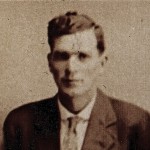 War I, would most likely have been very slow in coming. The death could come weeks before the notification. Just knowing that your child has been dead for that long and you are just finding out, would be enough to tear your heart out. That was quite likely the way things were for William and Theresa Spencer Davis. The news likely came by way of a letter. My guess is that even though Henry’s commanding officer tried to be kind, his words felt like a knife in their chest. It was likely very hard to breathe. Life would never be the same for them either, because their son had been killed in action. In the end, William and Theresa would also bury several other children before their own deaths. I can only imagine how awful that must have been.
War I, would most likely have been very slow in coming. The death could come weeks before the notification. Just knowing that your child has been dead for that long and you are just finding out, would be enough to tear your heart out. That was quite likely the way things were for William and Theresa Spencer Davis. The news likely came by way of a letter. My guess is that even though Henry’s commanding officer tried to be kind, his words felt like a knife in their chest. It was likely very hard to breathe. Life would never be the same for them either, because their son had been killed in action. In the end, William and Theresa would also bury several other children before their own deaths. I can only imagine how awful that must have been.
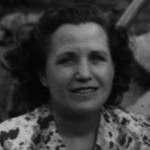 What is it about reading a story that intrigues us? It is the content, of course, but there is something more. Sometimes, we just want to take a few minutes outside ourselves…to lose ourselves in another man’s mind. It was a quote by Charles Lamb in 1890, who wrote “I love losing myself in other men’s minds” that came to me in a cover letter for my Great Aunt Bertha Schumacher Hallgren’s journal. It was written to some of her grand nieces and grand nephew, her sister, Mina’s grandchildren, when she gave them a copy of her journal…the writings of her thoughts. And when I read the letter, I was intrigued. I was very curious about her mind. I never had the opportunity to know Great Aunt Bertha, who went by Bertie, and I find that very sad. It is my opinion that she was an amazing woman. In her letter, she points out that all too often, historical writings take in simply the events as they occurred, but leave out the human side of things…the thoughts, emotions, feelings, and the impact the events had on the lives of the people who lived them. She also points out that the family stories told by the very of people who lived those stories will impact the lives of their descendants for years to come. She looks ahead to the 23rd century, and wonders what they would think of the events that shaped the lives of their ancient ancestors. After reading her letter, I realized that my stories had barely scratched the surface of the events I was writing about.
What is it about reading a story that intrigues us? It is the content, of course, but there is something more. Sometimes, we just want to take a few minutes outside ourselves…to lose ourselves in another man’s mind. It was a quote by Charles Lamb in 1890, who wrote “I love losing myself in other men’s minds” that came to me in a cover letter for my Great Aunt Bertha Schumacher Hallgren’s journal. It was written to some of her grand nieces and grand nephew, her sister, Mina’s grandchildren, when she gave them a copy of her journal…the writings of her thoughts. And when I read the letter, I was intrigued. I was very curious about her mind. I never had the opportunity to know Great Aunt Bertha, who went by Bertie, and I find that very sad. It is my opinion that she was an amazing woman. In her letter, she points out that all too often, historical writings take in simply the events as they occurred, but leave out the human side of things…the thoughts, emotions, feelings, and the impact the events had on the lives of the people who lived them. She also points out that the family stories told by the very of people who lived those stories will impact the lives of their descendants for years to come. She looks ahead to the 23rd century, and wonders what they would think of the events that shaped the lives of their ancient ancestors. After reading her letter, I realized that my stories had barely scratched the surface of the events I was writing about.
I began to think of the day to day moments of our lives, and how much of the future history is being lost, because we have not recorded the thoughts and feelings we experienced at the time that we experienced them. Great Aunt Bertie suggested that if a person was interested in writing about family history, they should question their parents about the lives of their parents and grandparents. I immediately felt a sense of loss, because my dad and my father-in-law are both gone, and the opportunity to talk with them is gone too. I also felt a sense of loss, because my mother-in-law has Alzheimer’s Disease, and doesn’t always remember the events from her past anymore. I did feel an urging to sit down with my mom to see what things she could tell me, and also with my aunts, because I still have a chance to get their perspective on things. It occurred to me that while the desire is there, time will be the biggest problem, because of work and other obligations. Still, I want to take the opportunity while I can do so, and I know that I will learn many interesting things about my family.
I look forward to reading more of Great Aunt Bertie’s journal. She was an amazing individual, and she had the presence of mind to think in the future. She knew that the past has a very important place in the future, and that the future generations will never know the great things their ancestors accomplished, unless someone tells them about it. They will never know how their ancestors felt when they made the decision to immigrate to a new country, with their future very uncertain, but knowing that they had no future where they were then. And yet, she saw the importance of the here and now too…the everyday changes in the lives of family members around us…the accomplishments, hopes, and dreams for their future. She knew the importance of documenting the everyday moments of a life. Thank you for your wisdom, Great Aunt Bertie, and thank you Julie Holmberg Carlberg for blessing me and the rest of the family with this wonderful journal and the pictures you sent too. Great Aunt Bertie’s legacy will always be our priceless treasure.

